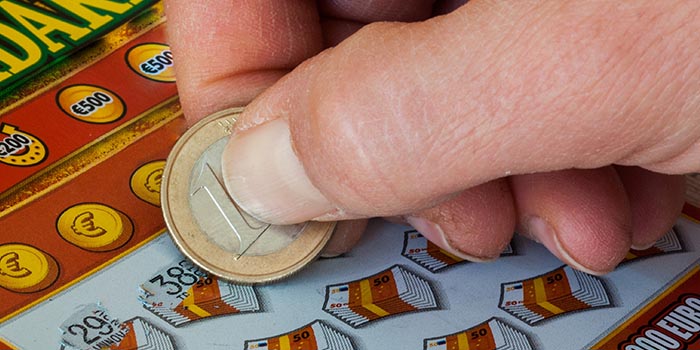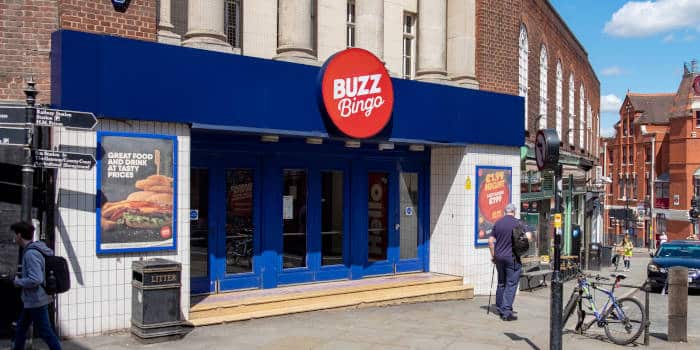- Casino
- By State
- Alabama
- Alaska
- Arizona
- Arkansas
- California
- Colorado
- Connecticut
- Delaware
- Georgia
- Florida
- Hawaii
- Idaho
- Illinois
- Indiana
- Iowa
- Kansas
- Kentucky
- Louisiana
- Maine
- Massachusetts
- Maryland
- Michigan
- Minnesota
- Mississippi
- Missouri
- Montana
- Nebraska
- Nevada
- New Hampshire
- New Jersey
- New Mexico
- New York
- North Carolina
- North Dakota
- Ohio
- Oklahoma
- Oregon
- Pennsylvania
- Rhode Island
- South Carolina
- South Dakota
- Tennessee
- Texas
- Utah
- Vermont
- Virginia
- Washington
- West Virginia
- Wisconsin
- Wyoming
- By State
- Slots
- Poker
- Sports
- Esports
UK’s National Lottery Operator Camelot Secures Gaming Certifications

UK’s National Lottery operator Camelot Group has obtained its Responsible Gaming Certifications for the European Lotteries and the Level 4 of the World Lottery Association for the fifth time in a row. The certifications are valid for three years and they were last updated in 2019.
What Do the Responsible Gaming Certifications Mean?
Both accreditations officially recognize the fact the National Lottery in the UK is running its licensed lotteries while having the highest player safety and player protection standards in place. The English operator brought a few significant changes to its healthy play strategy since it obtained its last certification three years ago. Among them, is the use of a better focused de-centralized strategy for healthy play. Accordingly, the operator’s entire personnel is now involved in yearly training for healthy play. The measures also included custom training targeting enhanced game awareness.
Two years ago, the operator released a training module for healthy play that retailers selling National Lottery tickets could use as a source of information regarding responsible gaming. The same module can also be used for testing retailers’ knowledge, while the ‘Interactions’ option allows them to record a variety of underage sales as well as healthy interactions with players.
Camelot Feels the Accreditations Prove Their Leadership in the Industry
The operator’s chief executive Nigel Railton expressed his excitement for having achieved the two certifications for the fifth in a row, further adding that at the end of the renewed three-year cycle, the operator will have held the reputable accreditations for 15 years. Railton also believed the fact that the operator obtained its first accreditations hassle-free from day one since the certifications were implemented sets them apart and proves their leading role in the area.
While strengthening the fact that Camelot is using high player safety standards, the new accreditations will not have the operator sleep on its laurels or put a halt to its continuous healthy play improvement efforts. Camelot raised over $50 billion in funding for good causes since its inception in 1994. However, some voices believe the operator’s contribution should be even higher, asking for a fixed percentage on the amount that reaches good causes.
Camelot Uses Behavior Analytics Systems
1994-launched Camelot had its lottery game design process assessed by independent companies. The auditors’ findings helped the operator develop better ways of assessing the potential risks associated with its games.
Camelot also decided to reinforce lower limits on players’ deposits, as well as lower play limits for players at high risk of problem gambling harm. By implementing an at-risk player identification system based on behavior analytics, Camelot managed to cut these players’ play limits on a daily basis. The same system works well at limiting the weekly account top-ups and providing active support to players in need of it. Starting April 2021, all of Camelot’s players must be at least 18 in order to be allowed to play.
The decision came five months prior to the decision to move the minimum age for playing National Lottery games from 16 to 18 being implemented. The change came after a thorough government assessment of the gambling regulations. Last October, the operator was accused by Conservative Party and Labor Party members of changing its focus on app-based lottery games which may cause more addiction. Camelot defended its decision through the large mass of people who wanted to place bets online in the context of the COVID-19 pandemic.
After finishing her master's in publishing and writing, Melanie began her career as an online editor for a large gaming blog and has now transitioned over towards the iGaming industry. She helps to ensure that our news pieces are written to the highest standard possible under the guidance of senior management.
Previous Article

Business
March 3, 2022
Russian and Belarusian Entities, Companies, Representatives Barred from Clarion Gaming Events
















